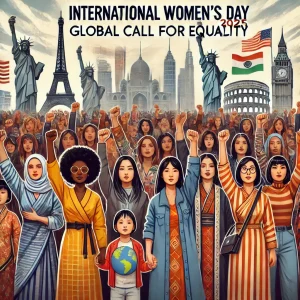It’s International Women’s Day and the field of Law has come along in leaps and bounds in terms of inclusion for women. What was traditionally a patriarchal industry just over 100 years ago in 1919, has seen a historic shift, with women now making up 50.1% of the 139,624 practising legal certificate holders. But even though it has been over a century since the Sex Disqualification (Removal) Act was passed allowing women to legally practise as solicitors and barristers in England, I believe there is still a long way to go to establish the level of women in senior roles in law firms.
The legalising of female solicitors and barristers heralded an opportunity for women to play an active part in changing the law going forward and gaining senior legal positions. However, even in 2020, there are still skewed preconceptions clients may have of what a top lawyer looks like. As the founder and CEO of my own company, I handle a lot of our high-profile work for international clients and senior male businessmen. Yet, throughout my career I have been asked if “the owner of the business will be attending”, had officials request that “a man be sent next time” and even specifically been asked by clients that “only a man represent me.”
I believe flexible working can also help to tackle this problem.
Increased visibility of women as senior partners and business leaders is needed to make these occurrences a thing of the past and a large contributing factor can be whether women choose to start families. The Sex Discrimination Act passed in 1975, as well as the Equality Act in 2010, marked both pregnancy and maternity as protective characteristics, making it harder to dismiss women who fall pregnant and decide to have children. Theoretically, this should protect women’s rights, meaning women should never feel anxious that motherhood could hinder their chances of promotion into senior roles. But the reality is I had to leave my high-profile job at an international law firm due to the negative reception I received when considering starting my own family.
I set up A City Law Firm as I never wanted anyone to feel this could potentially jeopardise their career progression, so it was crucial that I created an environment where employees knew their development would not be affected by becoming a parent.
I strongly encourage more women to speak at events, stand up and stand out.
I believe flexible working can also help to tackle this problem. This option can be frowned upon and is not offered by all law firms, yet it is something we need to push for further in the UK generally, especially within the legal profession. I feel it is both urgent and essential that we ensure more women seek higher roles, knowing they can still have families if they choose. Men should also be encouraged to explore flexible working patterns and arrangements so childcare is a shared duty.
In addition, I strongly encourage more women to speak at events, stand up and stand out. We need to be at the forefront, inspiring other women and reiterating the image of what a top lawyer looks like. I’m often the only female panellist to talk at investment events so it is clear to me that visibility is key and there currently is not enough of it. Recently in 2019, the City of London celebrated women by inviting 100 women to be freeman commemorating their contributions to the City. I was proud to be recognised and awarded the Freedom of the City, feeling that it established a real turn around as a traditionally male-dominated environment, honouring the contribution women in the City have made. Yet at Guild events, there are attendees who assume it is my husband who is the freeman and approach him to enter into conversation. Progression, whilst happening, is still far too slow and for change to occur more rapidly, women need to be unafraid to be disruptive and assertive in the city.
[ymal]
Although over the last 100 years women have made huge steps towards equality, there is still a long way to go. The Law Society reported a historic shift as women outnumber men in practising as solicitors stating, “Every step towards greater equality will benefit businesses, clients and solicitors alike”. It is vital that we promote and encourage equality of women lawyers working their way to more senior roles and recognise the valuable contribution that they bring to both the workforce and the law industry moving into the next century.





















